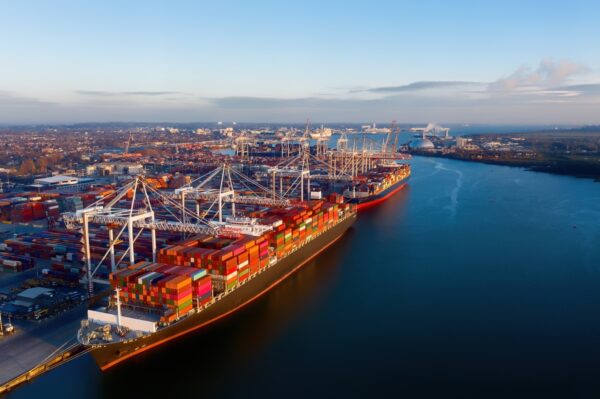A clean transport advocacy organisation has claimed that ships in some UK ports create more air pollution than cars.
Milford Haven in Wales was the most polluted, followed by Immingham in Lincolnshire and Southampton, according to a report by Transport and Environment (T&E).
It found ships in Milford Haven produced nearly 100 times more harmful sulphur oxides (SOx) than all 67,000 cars in Pembrokeshire in 2022.
The Port of Milford Haven said it questioned “the methodology they have used to reach their conclusions”, the BBC reported.
In Southampton, 46 cruise ships – 6% of vessels stopping there – produced more SOx than 200 container ships, the study claimed.
T&E are calling on the UK Government to mandate zero emission berths and create a shore side electricity plan in UK ports; charging ships calling at UK ports for their emissions whilst moored; and designating all UK territorial waters as Emission Control Areas, while prohibiting all scrubber wash water discharge in UK territorial waters.
Reaction from port operators and UK Government
The Guardian reported that a UK Chamber of Shipping spokesperson said the report did not take account of shore-side power now being used in Southampton by cruise ships, improving the air quality, but admitted that the UK was “behind the curve” and that more facilities should be installed.
A spokesperson for ABP said “ABP doesn’t recognise the numbers produced by Transport and Environment UK in their theoretical modelling and have concerns about the methodology they have employed and conclusions they have drawn,” the spokesperson added.
The Port of Milford Haven said it was “working incredibly hard, inside our own business and with our customers, to reduce emissions and deliver an accelerated transition to a Net Zero future”.
The British Ports Association, which represents UK operators, said the report lacked critical context and industry research showed emissions from ports were a fraction of wider background emissions in most cities.
Mark Simmonds, the association’s policy director, said most of the industry had “ambitious” net-zero targets, which would have “a positive impact on air quality”.
A UK Government Department for Transport spokesperson said the UK would be publishing an updated clean maritime plan for shipping as part of its 2050 net zero targets. The spokesperson said: “We’ve already invested over £200m to develop innovative technology that will decarbonise the industry [and] are currently looking at extending emission restrictions across our waters after their success in the North Sea.”
The full report, ‘Coastal fug: the UK’s most polluted ports, ranked in order’, and the news release from Transport and Environment can be read here.
